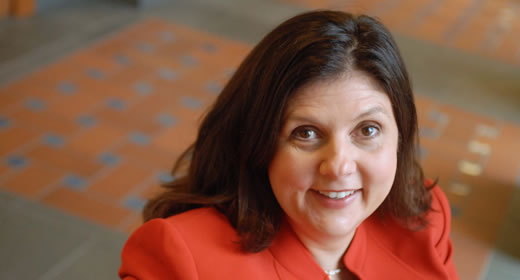
This June, the U.S. Department of Labor reported 6 million unfilled job openings--a record-breaking number. Today, Betsey Stevenson offered expert testimony at a Congressional Joint Economic Committee hearing on the topic: "A record six million U.S. job vacancies: Reasons and remedies." The focus of the hearing? Helping more American workers access those opportunities.
“Over the past six years, we’ve seen the longest, most persistent streak of job growth on record,” says Stevenson, who served as chief economist of the U.S. Department of Labor (2010-11) and as a member of President Obama’s Council of Economic Advisers (2013-15). “Since March 2010, businesses have added nearly 16.5 million jobs. Today there are 7.8 million more jobs than the pre-recession peak.”
- Read Stevenson's prepared remarks or watch the hearing video.
Of course, while the trajectory of job growth has been highly positive, Stevenson notes that certain job sectors have seen declines, leaving some American workers behind. “Sectoral changes are not a new force in the U.S. economy, but the changes that are occurring are hurting some groups more than others,” she says. “Many declining sectors are in traditionally male occupations, while traditionally female or more gender-mixed occupations are growing.”
Stevenson offers a number of suggestions for addressing the challenge, including evidence-based job training programs and apprenticeships, combatting job-related stereotypes, and ensuring that students from all socioeconomic backgrounds can access college and successfully earn a degree. “While many people argue that college for all may not be necessary, or even possible, it is important to recognize that a century ago the same arguments were made about public high school,” says Stevenson. “Our country’s willingness to ignore the naysayers and make high school free and widely available was an engine of economic growth in the last century.”
Betsey Stevenson is an associate professor of public policy and economics at the University of Michigan. She served as a member of the White House Council of Economic Advisers from 2013-15 and as chief economist of the U.S. Department of Labor from 2010-11. She is a member of the bipartisan AEI-Brookings Working Group on Paid Family Leave, sponsored by the American Enterprise Institute (AEI) and the Brookings Institution.